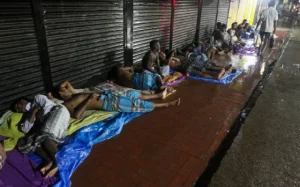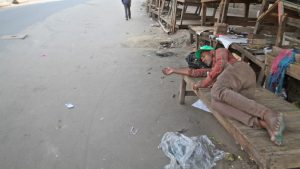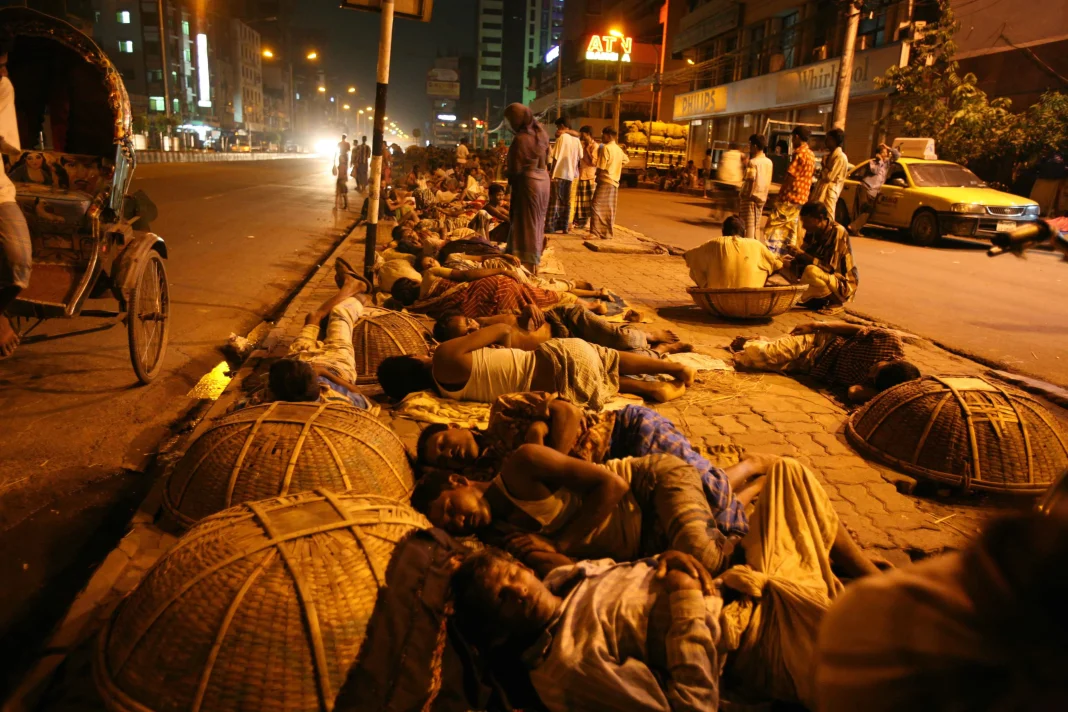The capital city of Bangladesh, Dhaka, is experiencing rapid development and a burgeoning population. However, the equitable distribution of resources across all sectors remains a challenge due to the urban region’s abundance of opportunities compared to the rural areas. This has led to an influx of individuals from rural areas seeking employment in the city, resulting in a significant floating population. Unfortunately, this group faces critical living conditions, including a lack of work, accommodation, and primary healthcare, which forces them to rely on begging to survive. Many of them suffer from chronic diseases or disabilities or are elderly, while some choose to begin overworking. The most vulnerable population in the country suffer from enormous health and family problems with no one to help them.

The situation is dire as these people face multiple other constraints, including having to pay local goons, lunatics, and the police to sit in their spots. Failure to pay results in torture and violence. Moreover, they often have leftover money at the end of the day that they cannot keep with them as local criminals might take it by force.
Although these challenges are not unique to Dhaka, they are prevalent throughout the country. Homelessness, unemployment, poverty, lack of accommodation, and resources are the primary factors that contribute to the struggles faced by the floating population. Additionally, they lack sufficient knowledge about the diseases they suffer from, and many have chronic, infectious, and non-communicable diseases.

The government must formulate effective policies to address these concerns, starting with identifying and gathering accurate data on the marginalised floating population. This information will help develop and implement suitable policies for their unique needs. The government has taken several initiatives that integrate with the World Health Organization, Universal Health Coverage, Sustainable Development Goals, and Leave No One Behind.
The government has also launched several skill development programs, including the National Skills Development Authority and its five-year Action Plan for skill development. However, the efficacy of current skill development programs for the floating population must be assessed, and a customised action plan must be created to cater to their unique needs.
Individuals can also play a role in improving the situation by volunteering their time and resources to help these people improve their situation. It is crucial to be aware of the floating population’s state of affairs and take responsibility for making their lives better. We can create a more equitable and just society for all by working together.
…………………………….. Reference
https://www.tandfonline.com/doi/full/10.1080/13547860.2021.1884173
https://www.brac.net/program/wp-content/uploads/reports/Universal%20Health%20Coverage%20of%20Street%20Dwellers%20or%20Floating%20Population%20in%20Bangladesh%20Exploring%20Health%20Care%20Seeking%20Behaviour.pdf

